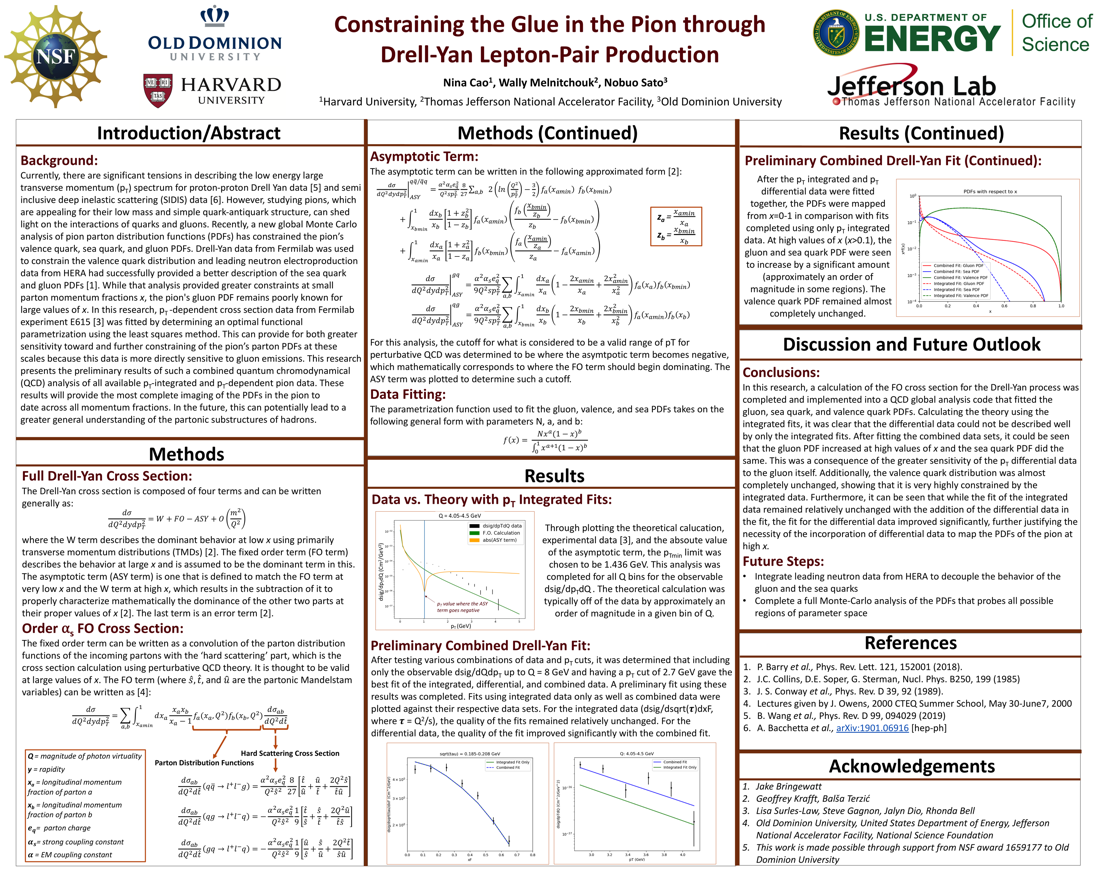Undergraduate Research at Jefferson Lab
Constraining the Glue in the Pion through Drell-Yan Lepton-Pair Production
Student: Nina Cao
School: Harvard University
Mentored By: Wally Melnitchouk
Currently, there is not a very strong understanding of the partonic (quark and gluon-level) behavior of hadrons. However, studying pions, which are appealing for their low mass and simple quark-antiquark structure, can shed light on the interactions of quarks and gluons. Recently, a new global Monte Carlo analysis of pion parton distribution functions (PDFs) has constrained the pion's valence quark, sea quark, and gluon PDFs. Drell-Yan data from Fermilab was used to constrain the valence quark distribution and leading neutron electroproduction data from HERA had successfully provided a better description of the sea quark and gluon PDFs. While that analysis provided greater constraints at small parton momentum fractions x, the pion's gluon PDF remains poorly known for large values of x. In this research, transverse momentum (pT)-dependent cross section data from Fermilab experiment E615 was fitted by determining an optimal functional parametrization using the least squares method. This can provide for both greater sensitivity toward and further constraining of the pion's parton PDFs at these scales because this data is more directly sensitive to gluon emissions. This research presents the preliminary results of such a combined quantum choromodynamical (QCD) analysis of all available pT-integrated and pT-dependent pion data, which show that the gluon PDF increases at high x when fitting both sets of data. These results will provide the most complete imaging of the PDFs in the pion to date across all momentum fractions. In the future, this can potentially lead to a greater general understanding of the partonic substructures of hadrons.

Citation and linking information
For questions about this page, please contact Education Web Administrator.
